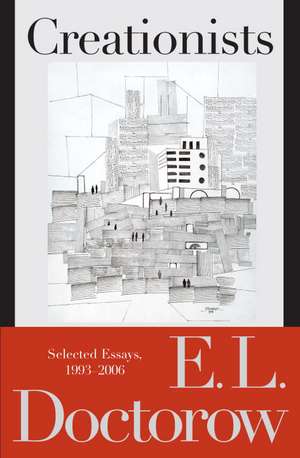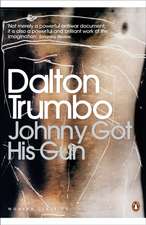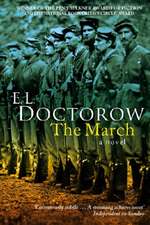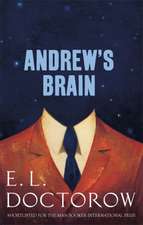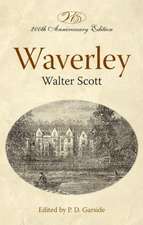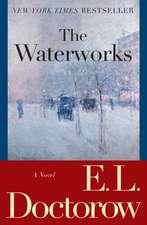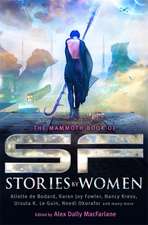Creationists: Selected Essays, 1993-2006
Autor E. L. Doctorowen Limba Engleză Paperback – 31 aug 2007
Just what is Melville doing in Moby-Dick? And how did The Adventures of Tom Sawyer impel Mark Twain to radically rewrite what we know as Huckleberry Finn? Can we ever trust what novelists say about their own work? How could Franz Kafka have written a book called Amerika without ever leaving Europe? In posing such questions, Doctorow grapples with literary creation not as a critic or as a scholar–but as one working writer frankly contemplating the work of another. It’s a perspective that affords him both protean grace and profound insight.
Among the essays collected here are Doctorow’s musings on the very different Spanish Civil War novels of Ernest Hemingway and André Malraux; a candid assessment of Edgar Allan Poe as our “greatest bad writer”; a bracing analysis of the story of Genesis in which God figures as the most complex and riveting character. Whether he is considering how Harpo Marx opened our eyes to surrealism, the haunting photos with which the late German writer W. G. Sebald illustrated his texts, or the innovations of such
literary icons as Heinrich von Kleist, Harriet Beecher Stowe, and Sinclair Lewis, Doctorow is unfailingly generous, shrewd, attentive, surprising, and precise.
In examining the creative works of different times and disciplines, Doctorow also reveals the source and nature of his own artistry. Rich in aphorism and anecdote, steeped in history and psychology, informed by a lifetime of reading and writing, Creationists opens a magnificent window into one of the great creative minds of our time.
From the Hardcover edition.
Preț: 161.62 lei
Nou
Puncte Express: 242
Preț estimativ în valută:
30.93€ • 32.29$ • 25.60£
30.93€ • 32.29$ • 25.60£
Carte tipărită la comandă
Livrare economică 31 martie-07 aprilie
Preluare comenzi: 021 569.72.76
Specificații
ISBN-13: 9780812975642
ISBN-10: 0812975642
Pagini: 176
Dimensiuni: 134 x 205 x 14 mm
Greutate: 0.16 kg
Ediția:Reprint
Editura: Random House Trade
ISBN-10: 0812975642
Pagini: 176
Dimensiuni: 134 x 205 x 14 mm
Greutate: 0.16 kg
Ediția:Reprint
Editura: Random House Trade
Notă biografică
E. L. Doctorow’s works of fiction include Welcome to Hard Times, The Book of Daniel, Ragtime, Loon Lake, World’s Fair, Billy Bathgate, The Waterworks, City of God, The March, Homer & Langley, and Andrew’s Brain. Among his honors are the National Book Award, three National Book Critics Circle awards, two PEN/Faulkner awards, and the presidentially conferred National Humanities Medal. In 2009 he was shortlisted for the Man Booker International Prize, honoring a writer’s lifetime achievement in fiction, and in 2012 he won the PEN/ Saul Bellow Award for Achievement in American Fiction, given to an author whose “scale of achievement over a sustained career places him in the highest rank of American literature.” In 2013 the American Academy of Arts and Letters awarded him the Gold Medal for Fiction. In 2014 he was honored with the Library of Congress Prize for American Fiction.
Extras
Chapter 1
1.
Genesis
The King James Version of the Bible, an early-seventeenth-century translation, seems, by its now venerable diction, to have added a degree of poetic luster to the ancient tales, genealogies, and covenantal events of the original. It is the version preachers quote from who believe in the divinity of the text. Certainly in the case of Genesis 1–4, in which the world is formed, and populated, and Adam and Eve are sent from the Garden, there could be no more appropriate language than the English of Shakespeare’s time. The King James does not suffer at all from what is inconsistent or self-contradictory in the text any more than do the cryptic ancient Hebrew and erring Greek from which it is derived. Once you assume poetically divine authorship, only your understanding is imperfect.
But when you read of these same matters in the contemporary diction of the Revised Standard Version, the Jamesian voice of holy scripture is not quite what you hear. In plainspoken modern English, Genesis—especially as it moves on from the Flood and the Tower of Babel, and comes up in time through the lives of Abraham, Sarah, Isaac, Rebecca, and then to the more detailed adventures of Jacob and Rachel and Joseph and his brothers—seems manifestly of the oral tradition of preliterate storytelling out of which the biblical documents emerged, when history and moral instruction, genealogy, law, science, and momentous confrontations with God were not recorded on papyrus or clay tablets but held in the mind for transmittal by generations of narrators. And so Genesis in the Revised Standard Version is homier—something like a collection of stories about people trying to work things out.
The contemporary reader would do well to read the King James side by side with the Revised Standard. Some lovely stereophonic truths come of the fact that a devotion to God did not preclude the use of narrative strategies.
If not in all stories then certainly in all mystery stories, the writer works backward. The ending is known and the story is designed to arrive at the ending. If you know the people of the world speak many languages, that is the ending. The story of the Tower of Babel gets you there. The known ending of life is death: the story of Adam and Eve and the forbidden fruit of the Tree of the Knowledge of Good and Evil arrives at that ending. Why do we suffer, why must we die? Well, you see, there was this garden. . . . The story has turned the human condition into a sequential narrative of how it came to be; it has used conflict and suspense to create a moral framework for being. And in suggesting that things might have worked out another way for humanity if the fruit had not been eaten, it has, not incidentally, left itself open to revision by some subsequent fantasist who will read into it the idea of original sin.
Artistry is at work also in the blessings the dying Jacob bestows on his twelve eponymous sons. Each blessing, an astute judgment of character, will explain the fate of the twelve tribes led by the sons. A beginning is invented for each of the historical tribal endings known to the writer. Never mind that we understand from the documentary thesis of Bible sources—for it is, after all, the work of various storytellers and their editors—that different sons are accorded hands-on leadership by their father according to which writer is telling the story. Character is fate. And life under God is always an allegory.
Another venerable storytelling practice is the appropriation of an already existing story. Otherwise known as adaptation, it is the principle of literary communalism that allows us to use other people’s myths, legends, and histories in the way that serves ourselves—Shakespeare’s reliance on Hollinshed’s Chronicles, for example, which should have, in honor, disposed him to share his royalties. In Genesis, the ancient scribes have retooled the story of the Flood recounted earlier in Mesopotamia and Sumer, including the vivid rendition from the Epic of Gilgamesh. Yet though the plot is the same, the resounding meanings are different, as befits an adaptation. Noah is unprecedented as the last godfearing, righteous man on earth . . . who may nevertheless drink a bit more wine than is good for him. And the God of Genesis is a Presence beyond the conception of the Sumerian epic.
The cosmology of Genesis is beautiful and for all we know may even turn out to be as metaphorically prescient as some believers think it is. One imagines the ancient storytellers convening to consider what they had to work with: day and night, land and sea, earth and sky, trees that bore fruit, plants that bore seed, wild animals, domesticated animals, birds, fish, and everything that crept. In their brilliant imaginations, inflamed by the fear and love of God, it seemed more than possible that these elements and forms of life, this organization of the animate and inanimate, would have been produced from a chaos of indeterminate dark matter by spiritual intent—here was the story to get to the ending—and that it was done by a process of discretion, the separation of day from night, air from water, earth from sky, one thing from another in a, presumably, six-day sequence culminating in the human race.
Every writer has to be in awe of the staying power of the Genesis stories, which have passed through the embellishing realms of oral transmission and the literate multilingual cultures of thousands of years. They are a group effort but not at all afflicted with the bureaucratic monotone that would be expected to characterize written collaborations. One reason for this may be the wisdom of the later scribes in leaving intact on the page those chronicles they felt obliged to improve upon. As a result we get more than one point of view, which has the effect, in the depiction of character, of a given roundness or ambiguity that we recognize as realistic. Consider Jacob, for example, who will wrestle with God or His representative and be named Israel, after all, but is impelled twice in his life to acts of gross deception—of his brother Esau, of his father, Isaac. Or the lovely, gentle Rebecca, who as a maid displays the innocent generosity that the servant of Abraham seeks, offering him the water from her water jar and then seeing to his camels . . . but who, years later, as the mother of Jacob, shrewishly assists her son in depriving Esau of his rightful patrimony.
In general, family life does not go all that smoothly for the founding generations. Beginning with Cain and Abel and persisting to the time of Joseph, biblical brothers seem—like the brothers in fairy tales—to be seriously lacking in the fraternal spirit. Wives who are not themselves sufficiently fertile foist slave women on their husbands for purposes of impregnation, and then become jealous of those women and have them sent away. There seem to be two stations of wife, high and low—Hagar and Leah being examples of the low—and the anger and resentment this creates is palpable. Overall the women of Genesis may be subject to an exclusively biological destiny as child bearers—theirs is a nomadic society that to survive must be fruitful—and the movable tent kingdoms in which they live may be unquestioningly paternalistic, but the modern reader cannot help but notice with relief how much grumbling they do.
It is in the pages of Genesis that the first two of the three major covenants between God and humanity are described. After the Flood, God assures Noah that He will not again lay waste to all creation in a flood. The sign of this covenant will be a rainbow in the clouds. Later, Abraham is commanded by God to resettle in Canaan, where he will be assured that he will eventually prevail as the father of many nations. Circumcision is the way Abraham and his descendants are to give sign of keeping this covenant. It is only in the next book, Exodus, that the final element of the covenantal religion—the Ten Commandments—will be given through Moses to his people. It is here that
God will be identified as Yahweh and a ritualized sabbath—
a simulation of God’s day of rest after the Creation—is to be identified as the sign.
Apart from their religious profundity, this graduated series of exchanges between God and man has to remind us of the struggle for human distinction or identity in a precarious, brute life. This was the Bronze Age, after all. The Abrahamic generations were desert nomads, outlanders, who lived in tents while people such as the Egyptians lived in cities that were the heart of civilization. The ethnically diverse territory that Abraham and his descendants were called to was abuzz with Amorites and other Canaanite tribes. Under such difficult circumstances it is understandable that the Abrahamic nomads’ desire to be a designated people living in a state of moral consequence would direct them to bond with one God rather than many gods, and to find their solace and their courage in His singularity, His totality. But that they did so was tantamount to genius—and a considerable advance in the moral career of the human race.
For finally, as to literary strategies, it is the invention of character that is most telling, and in the Genesis narratives it is God himself who is the most complex and riveting character. He seems at times to be as troubled and conflicted, as moved by the range of human feelings, as the human beings He has created. The personality of God cannot be an entirely unwitting set of traits in a theological text that declares that we are made in His image, after His likeness. There is an unmistakable implication of codependence. And this is no doubt some of the incentive for the idea expressed by the late Rabbi Abraham Joshua
Heschel that the immanence of God, His existence in us, is manifest in the goodness of human works, the mitzvoth or good deeds that reflect His nature. “Reverence . . . ,” says the Rabbi, “is the discovery of the world as an allusion to God.” And so in reverence and ethical action do our troubled conflicted minds find holiness, or bring it into being. Recognizing the glory of God is presumably our redemption, and our redemption is, presumably, His.
2.
E. A. Poe
These are the tales of Edgar Allan Poe
Not exactly the boy next door
from POEtry
a rock opera by Lou Reed
Edgar Allan Poe, that strange genius of a hack writer, lived in such a narcissistic cocoon of torment as to be all but blind to the booming American nation around him, and so, perversely, became a mythic presence in the American literary consciousness.
His life was an unremitting disaster. Orphaned at the age of two, he was the dysfunctional adoptee of an unforgiving surrogate father. A gambler and a drinker, Poe was booted out of the University of Virginia. He took it upon himself to drop out of West Point. When he married it was to a cousin, a tubercular child of thirteen. Committing himself to the freelance’s life, he lived at the edge of poverty. A Southerner, he stood forever outside the ruling literary establishment of New England.
Poe’s baleful yet wary expression in his most famous photo shows a man who believed he was born to suffer. If circumstances in his life were not propitious to suffering, he made sure to change them until they were. Deep in his understanding, almost as to be unconscious, was a respect for the driving power of his misery—that it could take manifold forms in ways he didn’t even have to be aware of, as if not he, but it, could create. That goes well beyond his conscious understanding of what he called the Imp of the Perverse—the force within us that causes us to do just what brings on our destruction.
His fiction can be so spectacularly horror-ridden as to suggest its origin in his dreams. Premature burials, revenge murders, and multiple-personality disorders abound. In proportion to his total output, Poe kills more women than Shakespeare. He kills them and they come back. They haunt, they avenge, they forgive. They are born one from another and merge again in death. Alive, they are entombed. Dead, they are dentally abused. Loved or hated, alive or ghostly, they are objects of intense devotion. Poe would claim, on occasion, to have written some of these pieces with enough distance to make him laugh. I don’t believe that. In his “Philosophy of Composition” he says the supreme subject for a poem is the death of a beautiful woman. It can be, but it doesn’t have to be. Another poet could write supremely of the death of a hired man. Another of the death of a civilization. In fact, as a poet, our Edgar is not the poet Melville is, to say nothing of Whitman or Dickinson. He is not major. He did not produce enough to be a major poet, and he may even be too much of a prim prosodist to be considered a minor poet. “The Raven” is to poetry as Ravel’s Boléro is to music: rhythmic and hypnotic on first hearing, a mere novelty everafter. Or evermore. Nowhere in his ravenous mourning for Lenore does Poe come near the simple lines of one of Wordsworth’s poems about the death of a young woman, “A Spirit Did My Slumber Seal”:
No motion has she now, no force;
She neither hears nor sees;
Rolled round in earth’s diurnal course
With rocks, and stones, and trees.
In these lines the poet does not claim an emotion; he gives us the means to create it in ourselves. Poe is usually a claimer. I have no great regard for his verse, though certainly his personality was that of “a poet to a T.”
We do not move on from other writers of his century—Emerson, Hawthorne, Melville—as we move on from Poe. His love fantasies are, in their wild surmise, childlike. We read him young—for whom love is death and there is no one without the other—and go on from there. (I exempt Poe scholars who have found something the rest of us haven’t. They argue for his work as Poe himself did. They take on his role of outsider. They suffer Henry James’s opinion that “an enthusiasm for Poe is the mark of a decidedly primitive state of reflection.”)
From the Hardcover edition.
1.
Genesis
The King James Version of the Bible, an early-seventeenth-century translation, seems, by its now venerable diction, to have added a degree of poetic luster to the ancient tales, genealogies, and covenantal events of the original. It is the version preachers quote from who believe in the divinity of the text. Certainly in the case of Genesis 1–4, in which the world is formed, and populated, and Adam and Eve are sent from the Garden, there could be no more appropriate language than the English of Shakespeare’s time. The King James does not suffer at all from what is inconsistent or self-contradictory in the text any more than do the cryptic ancient Hebrew and erring Greek from which it is derived. Once you assume poetically divine authorship, only your understanding is imperfect.
But when you read of these same matters in the contemporary diction of the Revised Standard Version, the Jamesian voice of holy scripture is not quite what you hear. In plainspoken modern English, Genesis—especially as it moves on from the Flood and the Tower of Babel, and comes up in time through the lives of Abraham, Sarah, Isaac, Rebecca, and then to the more detailed adventures of Jacob and Rachel and Joseph and his brothers—seems manifestly of the oral tradition of preliterate storytelling out of which the biblical documents emerged, when history and moral instruction, genealogy, law, science, and momentous confrontations with God were not recorded on papyrus or clay tablets but held in the mind for transmittal by generations of narrators. And so Genesis in the Revised Standard Version is homier—something like a collection of stories about people trying to work things out.
The contemporary reader would do well to read the King James side by side with the Revised Standard. Some lovely stereophonic truths come of the fact that a devotion to God did not preclude the use of narrative strategies.
If not in all stories then certainly in all mystery stories, the writer works backward. The ending is known and the story is designed to arrive at the ending. If you know the people of the world speak many languages, that is the ending. The story of the Tower of Babel gets you there. The known ending of life is death: the story of Adam and Eve and the forbidden fruit of the Tree of the Knowledge of Good and Evil arrives at that ending. Why do we suffer, why must we die? Well, you see, there was this garden. . . . The story has turned the human condition into a sequential narrative of how it came to be; it has used conflict and suspense to create a moral framework for being. And in suggesting that things might have worked out another way for humanity if the fruit had not been eaten, it has, not incidentally, left itself open to revision by some subsequent fantasist who will read into it the idea of original sin.
Artistry is at work also in the blessings the dying Jacob bestows on his twelve eponymous sons. Each blessing, an astute judgment of character, will explain the fate of the twelve tribes led by the sons. A beginning is invented for each of the historical tribal endings known to the writer. Never mind that we understand from the documentary thesis of Bible sources—for it is, after all, the work of various storytellers and their editors—that different sons are accorded hands-on leadership by their father according to which writer is telling the story. Character is fate. And life under God is always an allegory.
Another venerable storytelling practice is the appropriation of an already existing story. Otherwise known as adaptation, it is the principle of literary communalism that allows us to use other people’s myths, legends, and histories in the way that serves ourselves—Shakespeare’s reliance on Hollinshed’s Chronicles, for example, which should have, in honor, disposed him to share his royalties. In Genesis, the ancient scribes have retooled the story of the Flood recounted earlier in Mesopotamia and Sumer, including the vivid rendition from the Epic of Gilgamesh. Yet though the plot is the same, the resounding meanings are different, as befits an adaptation. Noah is unprecedented as the last godfearing, righteous man on earth . . . who may nevertheless drink a bit more wine than is good for him. And the God of Genesis is a Presence beyond the conception of the Sumerian epic.
The cosmology of Genesis is beautiful and for all we know may even turn out to be as metaphorically prescient as some believers think it is. One imagines the ancient storytellers convening to consider what they had to work with: day and night, land and sea, earth and sky, trees that bore fruit, plants that bore seed, wild animals, domesticated animals, birds, fish, and everything that crept. In their brilliant imaginations, inflamed by the fear and love of God, it seemed more than possible that these elements and forms of life, this organization of the animate and inanimate, would have been produced from a chaos of indeterminate dark matter by spiritual intent—here was the story to get to the ending—and that it was done by a process of discretion, the separation of day from night, air from water, earth from sky, one thing from another in a, presumably, six-day sequence culminating in the human race.
Every writer has to be in awe of the staying power of the Genesis stories, which have passed through the embellishing realms of oral transmission and the literate multilingual cultures of thousands of years. They are a group effort but not at all afflicted with the bureaucratic monotone that would be expected to characterize written collaborations. One reason for this may be the wisdom of the later scribes in leaving intact on the page those chronicles they felt obliged to improve upon. As a result we get more than one point of view, which has the effect, in the depiction of character, of a given roundness or ambiguity that we recognize as realistic. Consider Jacob, for example, who will wrestle with God or His representative and be named Israel, after all, but is impelled twice in his life to acts of gross deception—of his brother Esau, of his father, Isaac. Or the lovely, gentle Rebecca, who as a maid displays the innocent generosity that the servant of Abraham seeks, offering him the water from her water jar and then seeing to his camels . . . but who, years later, as the mother of Jacob, shrewishly assists her son in depriving Esau of his rightful patrimony.
In general, family life does not go all that smoothly for the founding generations. Beginning with Cain and Abel and persisting to the time of Joseph, biblical brothers seem—like the brothers in fairy tales—to be seriously lacking in the fraternal spirit. Wives who are not themselves sufficiently fertile foist slave women on their husbands for purposes of impregnation, and then become jealous of those women and have them sent away. There seem to be two stations of wife, high and low—Hagar and Leah being examples of the low—and the anger and resentment this creates is palpable. Overall the women of Genesis may be subject to an exclusively biological destiny as child bearers—theirs is a nomadic society that to survive must be fruitful—and the movable tent kingdoms in which they live may be unquestioningly paternalistic, but the modern reader cannot help but notice with relief how much grumbling they do.
It is in the pages of Genesis that the first two of the three major covenants between God and humanity are described. After the Flood, God assures Noah that He will not again lay waste to all creation in a flood. The sign of this covenant will be a rainbow in the clouds. Later, Abraham is commanded by God to resettle in Canaan, where he will be assured that he will eventually prevail as the father of many nations. Circumcision is the way Abraham and his descendants are to give sign of keeping this covenant. It is only in the next book, Exodus, that the final element of the covenantal religion—the Ten Commandments—will be given through Moses to his people. It is here that
God will be identified as Yahweh and a ritualized sabbath—
a simulation of God’s day of rest after the Creation—is to be identified as the sign.
Apart from their religious profundity, this graduated series of exchanges between God and man has to remind us of the struggle for human distinction or identity in a precarious, brute life. This was the Bronze Age, after all. The Abrahamic generations were desert nomads, outlanders, who lived in tents while people such as the Egyptians lived in cities that were the heart of civilization. The ethnically diverse territory that Abraham and his descendants were called to was abuzz with Amorites and other Canaanite tribes. Under such difficult circumstances it is understandable that the Abrahamic nomads’ desire to be a designated people living in a state of moral consequence would direct them to bond with one God rather than many gods, and to find their solace and their courage in His singularity, His totality. But that they did so was tantamount to genius—and a considerable advance in the moral career of the human race.
For finally, as to literary strategies, it is the invention of character that is most telling, and in the Genesis narratives it is God himself who is the most complex and riveting character. He seems at times to be as troubled and conflicted, as moved by the range of human feelings, as the human beings He has created. The personality of God cannot be an entirely unwitting set of traits in a theological text that declares that we are made in His image, after His likeness. There is an unmistakable implication of codependence. And this is no doubt some of the incentive for the idea expressed by the late Rabbi Abraham Joshua
Heschel that the immanence of God, His existence in us, is manifest in the goodness of human works, the mitzvoth or good deeds that reflect His nature. “Reverence . . . ,” says the Rabbi, “is the discovery of the world as an allusion to God.” And so in reverence and ethical action do our troubled conflicted minds find holiness, or bring it into being. Recognizing the glory of God is presumably our redemption, and our redemption is, presumably, His.
2.
E. A. Poe
These are the tales of Edgar Allan Poe
Not exactly the boy next door
from POEtry
a rock opera by Lou Reed
Edgar Allan Poe, that strange genius of a hack writer, lived in such a narcissistic cocoon of torment as to be all but blind to the booming American nation around him, and so, perversely, became a mythic presence in the American literary consciousness.
His life was an unremitting disaster. Orphaned at the age of two, he was the dysfunctional adoptee of an unforgiving surrogate father. A gambler and a drinker, Poe was booted out of the University of Virginia. He took it upon himself to drop out of West Point. When he married it was to a cousin, a tubercular child of thirteen. Committing himself to the freelance’s life, he lived at the edge of poverty. A Southerner, he stood forever outside the ruling literary establishment of New England.
Poe’s baleful yet wary expression in his most famous photo shows a man who believed he was born to suffer. If circumstances in his life were not propitious to suffering, he made sure to change them until they were. Deep in his understanding, almost as to be unconscious, was a respect for the driving power of his misery—that it could take manifold forms in ways he didn’t even have to be aware of, as if not he, but it, could create. That goes well beyond his conscious understanding of what he called the Imp of the Perverse—the force within us that causes us to do just what brings on our destruction.
His fiction can be so spectacularly horror-ridden as to suggest its origin in his dreams. Premature burials, revenge murders, and multiple-personality disorders abound. In proportion to his total output, Poe kills more women than Shakespeare. He kills them and they come back. They haunt, they avenge, they forgive. They are born one from another and merge again in death. Alive, they are entombed. Dead, they are dentally abused. Loved or hated, alive or ghostly, they are objects of intense devotion. Poe would claim, on occasion, to have written some of these pieces with enough distance to make him laugh. I don’t believe that. In his “Philosophy of Composition” he says the supreme subject for a poem is the death of a beautiful woman. It can be, but it doesn’t have to be. Another poet could write supremely of the death of a hired man. Another of the death of a civilization. In fact, as a poet, our Edgar is not the poet Melville is, to say nothing of Whitman or Dickinson. He is not major. He did not produce enough to be a major poet, and he may even be too much of a prim prosodist to be considered a minor poet. “The Raven” is to poetry as Ravel’s Boléro is to music: rhythmic and hypnotic on first hearing, a mere novelty everafter. Or evermore. Nowhere in his ravenous mourning for Lenore does Poe come near the simple lines of one of Wordsworth’s poems about the death of a young woman, “A Spirit Did My Slumber Seal”:
No motion has she now, no force;
She neither hears nor sees;
Rolled round in earth’s diurnal course
With rocks, and stones, and trees.
In these lines the poet does not claim an emotion; he gives us the means to create it in ourselves. Poe is usually a claimer. I have no great regard for his verse, though certainly his personality was that of “a poet to a T.”
We do not move on from other writers of his century—Emerson, Hawthorne, Melville—as we move on from Poe. His love fantasies are, in their wild surmise, childlike. We read him young—for whom love is death and there is no one without the other—and go on from there. (I exempt Poe scholars who have found something the rest of us haven’t. They argue for his work as Poe himself did. They take on his role of outsider. They suffer Henry James’s opinion that “an enthusiasm for Poe is the mark of a decidedly primitive state of reflection.”)
From the Hardcover edition.
